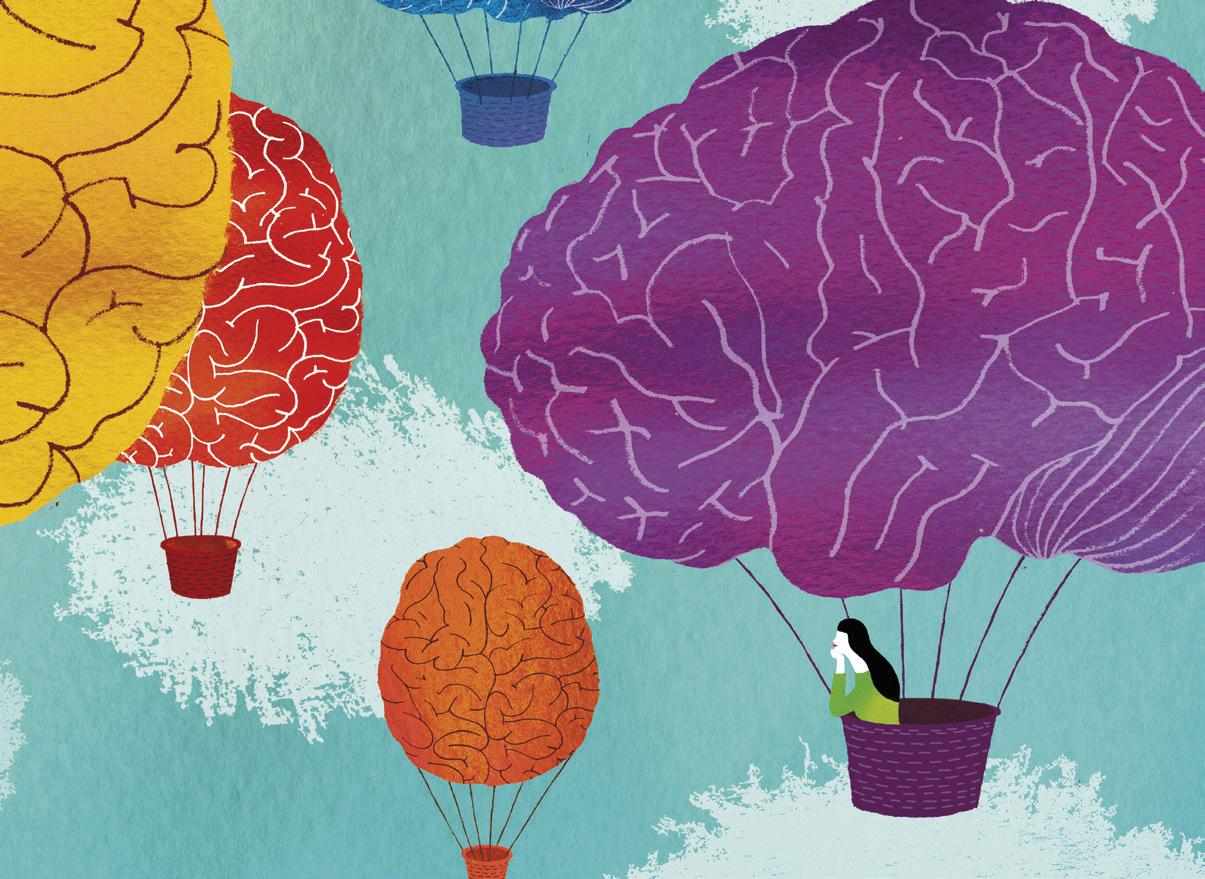
2 minute read
PHARMACY BENEFITS YOUTH MENTAL HEALTH
PHARMACY BENEFITS YOUTH MENTAL HEALTH
Despite increased public funding and awareness, access to mental healthcare remains limited for many vulnerable groups—especially young people. On average, only one specialized psychiatrist is available for every 10,000 children needing mental health services nationwide. Even when treatments are available, medication safety in children and adolescents remains a public health challenge.
USC School of Pharmacy faculty members Julie Dopheide and Steven Chen contributed to a review paper offering a solution to this shortfall: Add pharmacists to mental health teams. Their piece for the journal Child and Adolescent Psychiatric Clinics of North America explains the importance of interdisciplinary collaboration between pharmacists and child psychiatrists to achieving better outcomes for patients.
“Youth are increasingly prescribed psychiatric medications, and they are vulnerable to drug interactions and adverse effects and need special monitoring and education on the benefits and potential risks,” says Dopheide, professor of clinical pharmacy in the Titus Family Department of Clinical Pharmacy and a board-certified psychiatric pharmacist. For example, youth are more sensitive to certain antipsychotic side effects such as weight gain, Type 2 diabetes and muscle spasms. Sedation from some psychiatric medications may impact performance in school.
She notes that collaboration between child psychiatrists and pharmacists can lead to improved medication outcomes through appropriate medication selection, dosing, monitoring, and ongoing patient and family education. School of Pharmacy students and residents already collaborate with child psychiatry treatment teams during their introductory and advanced pharmacy practice electives, exposing them to career opportunities in mental health, Dopheide adds.
Some medications have been more thoroughly studied in youth than others, and having a pharmacist provide comprehensive medication management will help ensure optimal care, explains Chen, associate dean for clinical affairs and the William A. Heeres and Josephine A. Heeres Chair in Community Pharmacy. Chen also founded the California Right Meds Collaborative, which is devoted to improving medication use across specialties.
Recognizing the critical need for comprehensive medication management in psychiatric care, Chen adds that numerous states and counties are expanding pharmacists’ roles in the specialty. Policymakers in California, Indiana, Texas and other states have also partnered with pharmacists to issue pediatric psychotropic guidelines or practice parameters.
The authors bolstered their findings with three case studies illustrating the difference that psychiatric pharmacists and comprehensive medication management made in the lives of patients between 10 and 16 years old with conditions such as schizophrenia, severe depression, ADHD and autism spectrum disorder.









